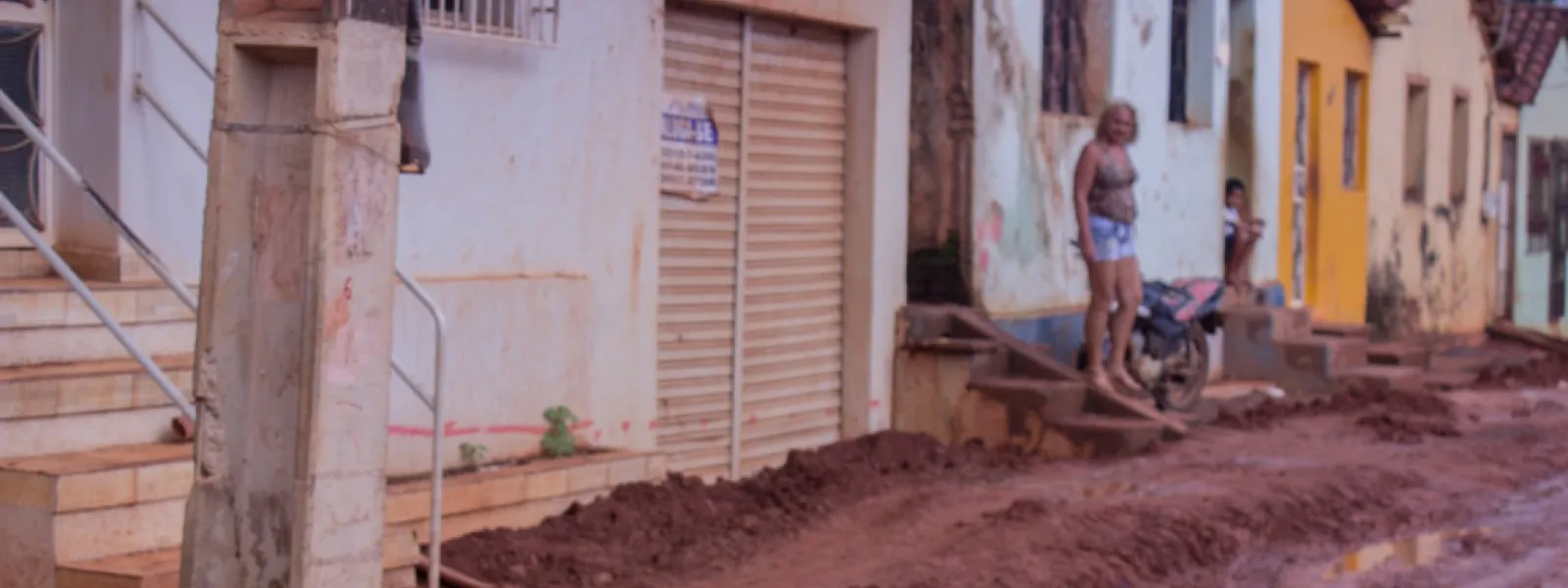
Project
Photo: Maíra Irigaray / Amazon WatchHolding Brazil accountable for the Belo Monte Dam
When fully operational, Belo Monte will be the third-largest dam in the world, constructed in one of the most important ecosystems on the planet: the Amazon rainforest. It sits on the Xingu River in Pará, a state in northern Brazil. The reservoir will cover 500 square kilometers of forest and farmland—an area the size of Chicago.
For the people of the Xingu, construction of Belo Monte has meant loss of access to water, food, housing, work and transportation. At least 20,000 people have been displaced.
The government and construction consortium began to construct the dam without first consulting the people of the region, many of whom are indigenous. They flouted international human rights law, which requires the free, prior and informed consent of affected indigenous communities. Brazil also failed to comply with precautionary measures issued by the Inter-American Human Rights Commission, which were intended to protect the life, health, and integrity of local communities.
Though Belo Monte began operations in May 2016, it is not yet operating at full capacity. In April 2016, a federal court suspended the dam's operating license because the consortium in charge did not complete basic sanitation works in Altamira, the city nearest to and most affected by the dam.
Partners:
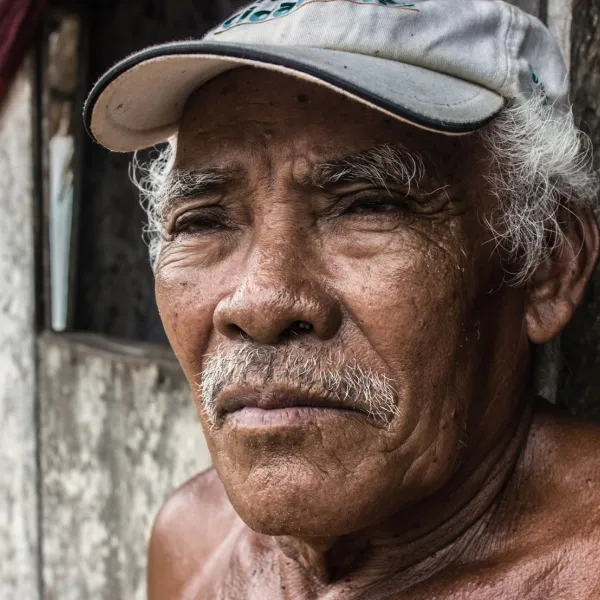
Related projects
Latest News
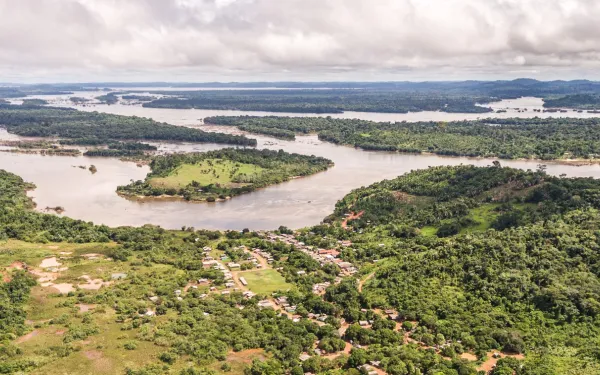
Defending the Volta Grande do Xingu in the Brazilian Amazon
"Certain lives exist only in the Xingu River, mine is one of them. And also that of the indigenous and riverine peoples. Can these lives be destroyed?” The question posed by Sara Rodrigues Lima - a local river dweller, fisherman and researcher - highlights the paradox that one of the most biodiverse, ecologically, climatically and culturally important regions in the world is also one of the most affected by socio-environmental impacts. The Volta Grande (or "Big Bend") of the Xingu River, located in the heart of the Brazilian Amazon, is home to a unique ecosystem and is a key region for the conservation of global biodiversity. For centuries, it has been home to indigenous and riverine peoples who have shared ownership of the river and the Amazonian rainforest, providing sources of food, water, identity, culture and mobility, among other things. This link has translated into livelihood systems based on caring for and defending the territory and their own existence, which are now severely threatened. Since 2015, this region has been the target of large extractive projects that threaten the livelihoods and physical and cultural survival of traditional peoples and communities. This has been accompanied by violence against people defending this Amazonian territory. In order to deal with this situation, the affected peoples and civil society have created a network that unites and strengthens their efforts. The Alliance for the Volta Grande do Xingu, formed by social movements and organizations, including AIDA, supports and coordinates actions to defend the region as a living and healthy territory. The coalition has taken the case to the United Nations. The cumulative impact of two megaprojects One of these projects is the Belo Monte dam, whose construction has caused irreparable environmental damage and human rights violations for several generations. The drought caused by the diversion of the river to generate electricity, as well as the ineffectiveness of the mitigation measures implemented, have led to an ecological and humanitarian collapse in the Volta Grande. Currently, thousands of traditional families are suffering from the death of fish, extinction of fishing, lack of food security, impoverishment, physical and mental illnesses. Another major threat to the region and its traditional inhabitants is the Volta Grande project, where the Canadian company Belo Sun intends to build the largest open-pit gold mine in Brazil. The coexistence of the two projects poses the risk of overlapping areas of direct impact. In this scenario, the potential damage to the environment and to indigenous and riverine peoples will be irreversible. The Belo Sun project is proposed to be built less than 10 kilometers from the Belo Monte dam, on the banks of the Xingu River, in the midst of indigenous lands, protected areas and traditional communities. The magnitude of the synergistic and cumulative impacts of the mine and hydroelectric dam has not been assessed. Also ignored were technical analyses that pointed to the serious impacts of the use of cyanide, the contamination of the river, and the risks of a dam breach that, if it were to occur, would flood 41 kilometers along the river and reach nearby indigenous lands. In addition, the state excluded indigenous peoples, riverine and peasant communities from the environmental licensing process for the mining project. Because they live outside the demarcated indigenous lands or more than 10 kilometers from the project, some indigenous peoples were not considered affected or consulted about the implementation of the project. The lack of consultation and public participation of indigenous and riverine peoples led Brazilian courts to order the suspension of the mining company's operating license. Violence and threats against human rights defenders The arrival of Belo Sun in the area is a serious intervention in the socio-cultural environment of the Volta Grande do Xingu. The overlapping of the mining project in a territorial polygon inhabited by traditional peoples, rural groups benefiting from the agrarian reform, and artisanal miners has led to community divisions and violence against those who oppose the mine. In the context of the project's development, there have been reports of illegal land purchase and sale contracts to evict rural families, threats to the area's inhabitants by private security companies, and violence against peasants claiming agrarian reform lands acquired by the mining company, which are the subject of legal proceedings. Threats of violence against environmental and human rights defenders have also increased in intensity and severity. Some of them have had to leave the area to protect their lives, and those who remain in the area face constant risks and threats. Defending the Volta Grande and its people before the United Nations One of the most important actions of the Alliance for the Volta Grande do Xingu has to do with advocacy in the Universal Periodic Review (UPR), a special process of periodic review of the human rights record of the 193 member states of the United Nations. At Canada's fourth UPR cycle in Geneva in August 2023, more than 50 civil society organizations and communities affected by Canadian business activities presented a report highlighting human rights abuses from 37 projects in nine countries in Latin America and the Caribbean, including Belo Sun's Volta Grande project. The document includes recommendations to ensure that states exercise effective environmental oversight that requires human rights due diligence on the part of companies operating in their territories. One of the defenders of the Volta Grande was part of the delegation in Geneva. In addition to denouncing the abuses suffered, he reported on the risks posed by the socio-environmental impact of the Belo Sun project. More than 20 countries and 13 permanent missions and UN agencies took note of the situation in the region. The results of Canada's fourth UPR cycle, released last month, include 34 recommendations directly related to the Alliance's report. Canada has not yet accepted these recommendations, but may do so at the next session of the UN Human Rights Council, which concludes on April 5. As a follow-up to the UPR advocacy, the Alliance submitted reports on the impact of the Belo Sun project to UN Special Rapporteurs. One of them, sent to the Special Rapporteur on Human Rights Defenders of the Inter-American Commission on Human Rights, focuses on the situation of vulnerability and criminalization of human rights defenders. Similarly, the Alliance submitted a report to the UN Committee on Economic, Social and Cultural Rights highlighting the human rights violations committed by Brazil in the Belo Monte and Belo Sun cases, as well as the lack of effective measures to require human rights due diligence by the companies responsible for these projects. Networking in these international spaces to expose the pattern of environmental impacts and human rights violations of extractive economic projects in Amazonian territories has been one of the alliance's strategies of resistance and denunciation. The conservation of the Amazon and the protection of its peoples are incompatible with the large-scale mining planned by Belo Sun. States have an obligation to prevent serious and irreversible damage to the environment and the population. In the case of Belo Sun, Brazil has the opportunity to avoid repeating the environmental tragedy of Belo Monte and to declare definitively that the mining project is unsustainable from a socio-environmental point of view. The road to these demands and the achievement of these goals will be full of challenges and struggles. But courage and resisting are inherent to those who live in and defend the Amazon. The defense of the Xingu River Basin as a free, vibrant, healthy and safe territory for its peoples and its defenders is an urgent call for social mobilization for the social-ecological protection of one of the world's most important ecosystems.
Read more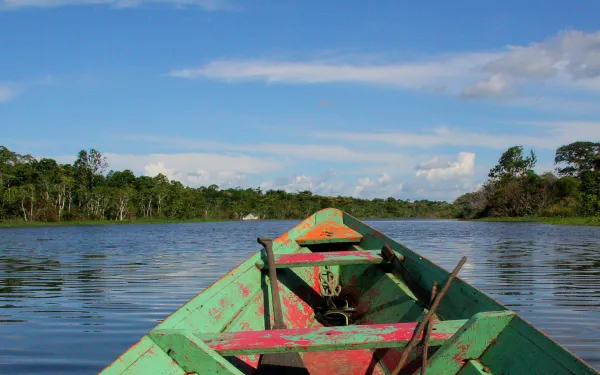
Investor Alert: Belo Sun discloses misleading information to investors regarding controversial gold mining project in the Brazilian Amazon
In a complaint to the Ontario Securities Commission, an international coalition of civil society organizations calls attention to the repeated dissemination of misleading information by Belo Sun Mining Corp (TSXV:BSX), including statements by CEO Peter Tagliamonte, downplaying socio-environmental, legal, and financial risks of the company’s “Volta Grande” project along the Xingu River. Canadian-based mining company Belo Sun Corp.(TSXV:BSX) is disseminating misleading and incomplete information to investors about the mining project it is trying to develop on the Xingu river (Volta Grande do Xingu), Pará State, Brazil. This is the central message of a warning letter sent to the Ontario Securities Commission (OSC) on July 29rd by an international coalition of civil society organizations and networks including Amazon Watch, Earthworks, Instituto Socioambiental (ISA), Interamerican Association for Environmental Defense (AIDA), International Rivers, MiningWatch Canada, Movimento Xingu Vivo para Sempre and Rede Xingu+. The OSC is an independent Canadian Crown corporation responsible for protecting shareholders and investors from unfair, improper and fraudulent practices from companies and industries. Drafted by a legal team and supported by independent technical and scientific analysis, the complaint letter challenges recent statements by Belo Sun’s CEO Peter Tagliamonte. In a speech at the Prospectors & Developers Association of Canada (PDAC) event in March 2021, the largest mining convention in the world, Tagliamonte cited the Covid-19 pandemic as the justification for repeated delays in the environmental licencing of the Volta Grande mine, claiming that the mining project was "fully authorized" and that construction was expected to begin at the end of 2021. Similar comments have been made in recent company statements, and by Tagliamonte himself in other occasions. According to the complaint, such declarations are patently false. There are seven public civil actions active in Brazilian courts asking for the suspension of permits and of the licencing process, filed by Federal and State public prosecutors’ and defenders’ offices. These lawsuits focus specifically on irregularities in the Environmental Impact Assessment (EIA), and the lack of free, prior and informed consultation and consent with Indigenous peoples and other traditional communities. The coalition argues that there is overwhelming evidence that Belo Sun breached the Securities Act disclosure requirements, which requires companies to disclose material changes “forthwith” (without delay). Companies must disclose factual and updated data to keep investors well informed. Misleading information disclosed by Belo Sun Mining Corp. According to the complaint, while the company acknowledges the generic risks associated with the licensing process, it fails to disclose the concrete details of the legal actions and suspensions in play regarding its project, relying on investors' lack of knowledge concerning licensing legislation in Brazil. One example refers specifically to the suspension of its construction licence (LI), due to the lack of "free and informed consultation" of Indigenous peoples. In its more recent Corporate Update, Belo Sun states that "it continues to advance financial discussions with various groups in preparation for the commencement of construction following the lifting of the suspension of the construction license (LI)". "The company has not even started a consultation process, - which is now delayed by COVID-19 - and it is already advertising the lifting of the suspension, as if it was just a matter of time", says Marcella Ribeiro, attorney from AIDA's Human Rights and the Environment Program. "The company is not in a position to guarantee the results of the consultation process, as negotiations around consent are time-consuming and will invariably result in major material changes to the project. None of that is being disclosed properly to investors", she adds. Among the risks associated with investments in Belo Sun, the complaint highlights the history of judicial proceedings; conflict around the project; the flaws and gaps in the environmental impact assessment; and the violation of the Indigenous Peoples’ right to prior consultation. The downplaying of environmental and social risks by the company’s studies and impact assessments has sounded the alarm among communities in the Volta Grande region, already affected by the Belo Monte dam. A series of independent technical studies challenge Belo Sun’s statements regarding impacts to water resources, to fauna and flora, and regarding dam safety. The company’s refusal to acknowledge impacts in Indigenous territories along the Xingu river has led to the court decision that suspended the installation licence of the Volta Grande project in 2017 until "free and informed consultation" was carried out. There are also increasing accounts of intimidation and harassment against project opponents, which demonstrate a much more complex and contentious situation as a result of the project than what has been disclosed by the company, the complaint stresses. The coalition concludes that "Belo Sun has failed to fully communicate to current and potential investors about the complex nature of its project" which has a "direct implication for delays, and raises fundamental questions about the project’s viability". The letter delivered to the OSC aims to increase visibility to the many irregularities of the project and to raise awareness among current and potential investors about the major reputational and legal risks attached to the project, at a moment when heightened attention is focused on the Amazon rainforest and its capacity to provide environmental services and mitigate climate change. About Belo Sun’s Volta Grande Project Proposed for development along the Volta Grande (Big Bend), a stretch of the Xingu River (a major tributary of the Amazon) that is one of the most biodiverse locations on the planet, Belo Sun’s project would be the largest open pit gold mine in Brazil. The region is home to indigenous people such as Juruna (Yudjá), Arara, and Xikrin, along other isolated Indigenous and riverside communities. From the outset, Belo Sun has faced numerous lawsuits regarding the Volta Grande Project filed by the Federal Public Prosecutor's Office, the State Public Prosecutor's Office, the State Public Defender's Office, and the Union Public Defender's Office. All of these lawsuits refer to the multiple flaws in its licensing process and in the project’s technical studies. Among other things, the lawsuits seek the cancellation of the company's licences and the suspension of the project's licensing process. One of them resulted in a court decision, still valid, to suspend Belo Sun’s construction licence. press contacts Viviana Herrera, MiningWatch Canada, [email protected] Camila Rossi, Amazon Watch, [email protected] Cecilia Garcia, International Rivers, [email protected] Victor Quintanilla, AIDA, [email protected]
Read more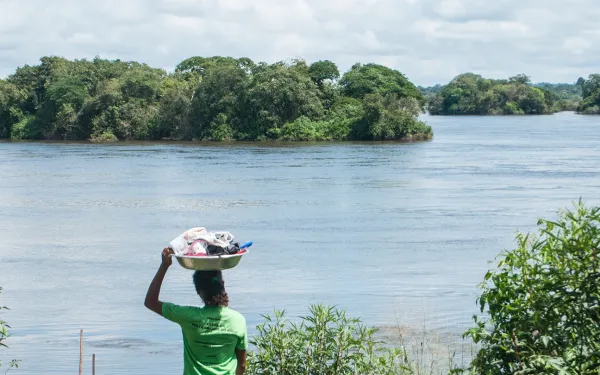
Human Rights Council addresses the water crisis and environmental defenders protection
The 46th session of the United Nations Human Rights Council is the first to be held entirely online, due to the COVID-19 pandemic. It runs until March 23. The virtual format of this HRC session enabled AIDA to make our first participation ever in the HRC and join the discussions on two of the topics that are at the core of its human rights work: the right to a healthy environment and the protection of environmental human rights defenders. On 03 March, the Special Rapporteur on Human Rights and the Environment, David Boyd, presented his report “Human Rights and the Global Water Crisis” to the Human Rights Council. In it, Boyd highlighted the severe impacts of water pollution, water scarcity and water-related disasters on the rights to life, health, education, food, development and the right to a healthy environment. He also emphasized that climate change is a risk-multiplier, exacerbating water-related human rights issues. The Special Rapporteur called on States to incorporate a rights-based approach in both their climate strategies and water plans. Finally, Boyd reiterated his call for the Human Rights Council to support the initiative for a resolution to recognize that everyone everywhere has the right to live in a safe, clean, healthy and sustainable environment. In the Interactive Dialogue that followed Boyd’s presentation, AIDA Attorney Rosa Peña denounced the negative impacts of mega-dams, coal mining and fracking on human rights and water access in Latin America. She noted that these projects not only threaten the human rights of local communities but also exacerbate the climate crisis. She called the attention of the Special Rapporteur to the communities affected by the Belo Monte mega-dam in the Brazilian Amazon. Currently, implementation of the so-called ‘Consensus Hydrogram’ in the Xingu River threatens the lives of local communities, pollutes the water, dries up the river and causes food insecurity and severe biodiversity loss. On March 4, it was the turn of the Special Rapporteur on Human Rights Defenders, Mary Lawlor, to engage in an Interactive Dialogue on ”Final warning: death threats and killings of human rights defenders” She concluded that lack of political will is one of the reasons why various States fail in their moral and legal obligation to protect Human Rights Defenders, and therefore called for more effective responses to the threats against them. Representing AIDA in the Interactive Dialogue, Attorney Marcella Torres highlighted that Latin America is the most dangerous region in the world for environmental human rights defenders and urged all States to actively protect them. She turned the spotlight on the situation of environmental defenders in Brazil, Guatemala and Colombia, where the invasion of indigenous lands, mega-dams and fracking are closely related to the increase in violence against defenders. She concluded by reminding States that the protection of environmental defenders should promote the recognition of the right to a healthy environment, and provide guarantees so that all people are free to exercise their right to defend human rights. See AIDA’s contributions in the Interactive Dialogues in full:
Read more